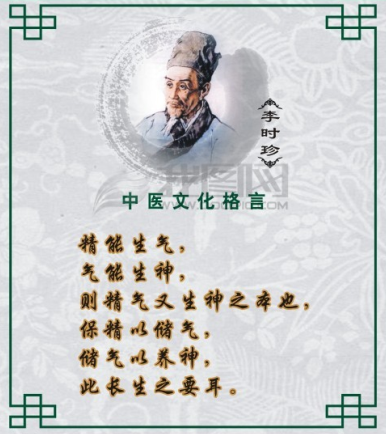The occurrence of disease is due to two factors, deficiency of healthy qi and attack of pathogenic factors. However, these two factors play different roles in a specific disease. Sometimes disease is caused by deficiency of healthy qi, and sometimes by attack of pathogenic factors, resulting in either deficiency syndrome or excess syndrome. Huangdi Neijing says. "Excess means predomination of pathogenic factors while deficiency means exhaustion of essence." That is to say that "excess" is related to pathogenic factors while "deficiency" is related to healthy qi.
1. Excess Syndrome
Excess syndrome is characterized by predomination of pathogenic factors and abundance or certain degree impairment of healthy qi. Violent struggle between pathogenic factors and healthy qi leads to a series of excess symptoms. That is why it is a syndrome of excess nature. Excess syndrome is often seen at the early and medium stages of diseases caused by six abnormal climatic factors or diseases caused by phlegm, rheum, blood stasis, retention of food and accumulation of dampness and water in the body.
Clinically excess syndrome includes superabundance of phlegm, internal blockage of blood stasis, indigestion and abnormal flow of water and dampness as well as the manifestations of high fever, mania, sonorous voice and hoarse breath, unpalpable abdominal pain, constipation, anuria and powerful pulse, etc.
2. Deficiency Syndrome
Deficiency syndrome is marked by deficiency of healthy qi. Though pathogenic factors are not totally eliminated, they are not strong enough to damage healthy qi. So the struggle between pathogenic factors and healthy qi is mild with symptoms of deficiency of healthy qi and hypofunction of the viscera. That is why this kind of syndrome is termed deficiency syndrome. Deficiency syndrome is often seen at the advanced stage of exogenous diseases.
It usually results from non-restoration of healthy qi, or frequent weakness of the body, or exhaustion of essence due to serious disease, protracted disease and chronic disease, or damage of qi, blood and body fluid due to profuse sweating, violent vomiting and diarrhea and massive hemorrhage, etc. Clinically the manifestations of deficiency syndrome include dispiritedness, sallow complexion, palpitation and shortness of breath, spontaneous sweating, night sweating, or feverish sensation in the five centers (palms, soles and chest), or aversion to cold and cold limbs as well as weak pulse, etc.

3. Mixture of Deficiency and Excess Syndrome
During the course of a disease, the predomination and decline of pathogenic factors and healthy qi may lead to either simple deficiency syndrome and excess syndrome or mixture of deficiency syndrome and excess syndrome. Mixture of deficiency syndrome and excess syndrome may be caused by delayed or improper treatment of excess syndrome that leads to prolonged retention of pathogenic factors in the body and impairment of healthy qi, or by coagulation of pathological substances like dampness, water and blood stasis due to deficiency of healthy qi.
Mixture of deficiency syndrome and excess syndrome is characterized by either deficiency complicated by excess or excess complicated by deficiency. The former is marked by domination of deficiency syndrome accompanied by excess of pathogenic factors, such as edema due to inactivation of spleen-yang. The latter is marked by domination of excess syndrome accompanied by deficiency manifestations, such as excess-heat consuming yin-fluid at the medium stage of febrile diseases.
4. Mutual Transformation Between Deficiency Syndrome and Excess Syndrome
Deficiency syndrome and excess syndrome are not fixed, they often transform into each other due to struggle between pathogenic factors and healthy qi. Such a mutual transformation is characterized by transformation either from excess into deficiency or from deficiency into excess. In excess syndrome, healthy qi is usually not deficient. However, delayed or improper treatment may prolong the course of duration, leading to impairment of healthy qi and the physiological functions of the viscera and resulting in transformation of excess into deficiency.
In deficiency syndrome, there is no invasion of pathogenic factors. However, deficiency of healthy qi and hypofunction of the viscera may lead to abnormal flow of qi, blood and body fluid and bring on qi stagnation, blood stasis, phlegm and rheum as well as water and dampness, eventually resulting in deficiency complicated by excess. Though there is excess of pathogenic factors, healthy qi is still insufficient. Thus this morbid state is termed "excess caused by deficiency".







